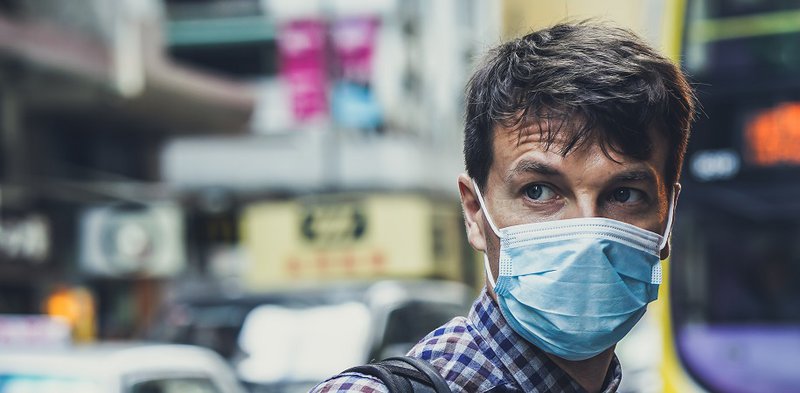
Accredited labs for respiratory face mask testing
Which testing labs can test medical protective equipment according to legal requirements?
In the wake of the coronavirus pandemic 2019/2020, the worldwide demand for mouthguards (MNS) and particle-filtering half masks has exploded. Not only medical companies, but also other businesses, private consumers and even governments are buying up newly produced face masks in a very short time and in large quantities. Several local authorities have also introduced compulsory wearing of face masks in certain public places such as supermarkets. In order to meet the huge demand for face masks, new manufacturers are starting up. On the other hand, companies from other industries, such as textile producers, are also switching their production to such masks. But before newly produced face protection products can be put into circulation, they must meet certain requirements. In a separate article, we have already dealt with these requirements for the testing and certification of respirators. Which laboratories meet the requirements to carry out the necessary testing of face masks and other protective equipment, which is becoming increasingly relevant in the wake of the current coronavirus crisis (Sars-CoV-2 / COVID-19)?
Accredited testing labs for testing CoV-2 protective masks
IMPORTANT: If you are looking for an accredited testing lab for CoV-2 protective masks, please submit a free request now in order to avoid long wait times. Within the EU, there is a limited selection of qualified laboratories that can test mouthguards and filtering half-masks according to the most relevant standards EN 14683 and EN 149. These include among others:
- Central Institute for Labour Protection - National Research Institute, Warsaw, Poland
- Centro Nacional de Medios de protección (CNMP), Sevilla, Spain
- VeronaLab S.r.l., Dossobuono di Villafranca, Italy
- Ecoprisma S.r.l., Prato, Italy
- Coronati Consulting S.r.l., Mirandola, Italy
- Lab4LIFE S.r.l., Bologna, Italy
- Studio di microbiologia ed ecologia S.r.l., Lecce, Italy
- Ecopoint S.r.l., Avezzano, Italy
- AGROLAB ambiente S.r.l., Monsummano Terme, Italy
- Tecnal S.r.l., Valsamoggia, Italy
- Biochem S.r.l., Predosa, Italy
- Lab-Control S.r.l., San Martino di Venezze, Italy
- HygCen Austria GmbH, Bischofshofen, Austria
All these laboratories can be contacted with a free request via the testxchange platform.
Requirements for personal protective equipment
The requirements and standards according to which testing laboratories test respiratory protection masks were already discussed in a separate article on the testing and certification of respiratory protection masks. Depending on the market in which the face masks or other types of personal protective equipment are to be sold and used, conformity with certain standards may be required. Important examples are the following:
Respiratory masks and filters
Other protective clothing
Impact of respiratory masks for protection against Sars-CoV-2
What protection do the masks tested by an accredited testing laboratory offer against infection with the corona virus Sars-CoV-2 and the lung disease COVID-19 caused by it, and who should wear them? In general, in the context of the coronavirus pandemic, the main purpose of face masks is to protect the wearer's surroundings from droplet infections. This is achieved by reducing the range of droplets emitted when breathing, coughing or sneezing. Since Sars-CoV-2 viruses can penetrate even very dense masks and face masks are often not worn properly tight, they cannot provide 100% protection. A sars-CoV-2 protective effect in the other direction, i.e. protection of the wearer from viral infections by other persons, is generally not intended. The World Health Organization (WHO) therefore currently recommends the wearing of respiratory masks for two groups of people:
- People who currently sneeze and cough
- Healthy people who treat or care for people infected with Sars-CoV-2